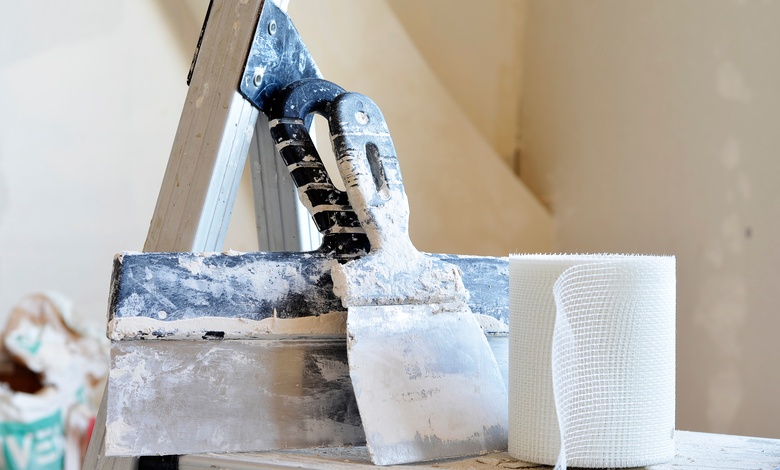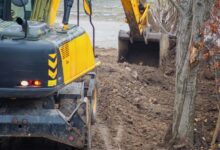
A Basic List of Tools Used in the Drywall Business
Whether you’re a seasoned drywall contractor or someone just starting out, having the right tools ensures efficiency and quality for every job. From cutting and taping to sanding and finishing, specific tools are integral to simplify the process and deliver professional results. We’ve created a basic list of tools used in the drywall business to help rookies or veterans prepare for a job.
Taping Knives for Precision and Efficiency
Taping knives are indispensable in drywall work. These specialized tools are used for applying joint compounds, smoothing seams, and ensuring flat surfaces. With various sizes available, from 6-inch blades for tight corners to 12-inch versions for larger areas, you can select the right tool for the job.
A stainless steel taping knife offers durability while reducing the risk of rust. Flexible blades achieve a seamless finish, making them a top choice across the industry.
Drills and Fasteners for Building Strong Structures
Drywall installation relies heavily on drills and fasteners. Power drills with adjustable speeds and torque control make it easier to install drywall quickly and securely.
Cordless drills allow for easy mobility on job sites, particularly for large-scale projects. When paired with the appropriate drywall screws, these tools ensure panels are precisely attached to studs or frames, avoiding structural damage or loose panels.
Mud Pans and Mixing Equipment for Perfect Compounds
When working with joint compound—commonly known as mud—mud pans and mixing tools play an essential role. Stainless steel or durable plastic mud pans keep your compound ready for application while preventing unnecessary messes. For larger projects, investing in a powerful mixing drill ensures the compound is lump-free and perfectly blended, saving time and adding to overall job precision.
One tool that requires maintenance is the drywall banjo, used to apply tape seamlessly to joints. Regular cleaning prevents dried compound build-up, while proper lubrication of moving parts ensures smooth operation.
Safety Gear To Protect Workers
Safety is paramount in any drywall business. Due to the dust, debris, and potential hazards involved, including sharp tools and heavy materials, having the proper safety gear is critical.
Well-fitted goggles protect the eyes from dust particles, while a quality dust mask prevents inhalation of harmful debris. Gloves safeguard hands from cuts during cutting or sanding, and steel-toed boots prevent foot injuries from falling tools or drywall panels.
Sanding Tools for a Smooth Finish
Once the panels are in place and joints taped, sanding tools come into play to refine the surface. Hand sanders and pole sanders are common for smoothing larger areas, while sanding sponges allow you to finesse tighter corners. Dustless sanding systems are increasingly popular as they minimize airborne debris by creating a cleaner and more efficient workspace.
The tools you choose for your drywall business directly affect productivity, work quality, and safety. By investing in essential items like taping knives, reliable drills, mud pans, safety gear, and sanding tools, you’ll be ready to handle any job with professionalism. If you’re ready to refine your process further, explore advanced equipment options and maintenance tips today.






